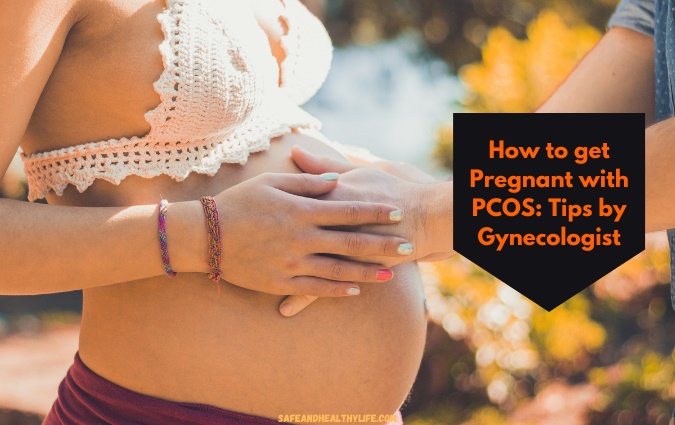
PCOS is one of the most common reasons for women’s infertility.
However, the illness can be treated via lifestyle modifications such as a healthy diet and regular exercise; however, some women may require medication.
PCOS, or polycystic ovarian syndrome, is a hormonal disorder that affects about 5 million Indian women and is one of the leading reasons for infertility in women.
However, some lifestyle adjustments, such as a healthy diet and regular exercise, can help control the illness, while others require a prescription. In this article, Dr. Himali Maniar, a leading gynecologist in Bopal, Ahmedabad, offers some advice to PCOS sufferers.
Dr. Himali Maniar, who currently consults at Nisha Women’s Hospital in Bopal, Ahmedabad, is one of the greatest gynecologists in the city.
She attends to the gynecological needs of women in Bopal and the neighboring areas with kindness. She specializes in gynecological, obstetric, general surgery, and infertility-related treatments, both major and minor.
She is susceptible to women’s specific needs and concerns as a lady gynecologist in Bopal. As a result, Dr. Himali Maniar can provide comprehensive care in a welcoming and participatory setting.
She is dedicated to providing exceptional gynecological care, as well as advanced surgery and non-surgical treatments. She is backed up by a knowledgeable and committed crew that is always willing to lend a hand.
All of Dr. Himali Maniar’s patients enjoy a warm and friendly environment. She makes an effort to build strong ties with her patients, and she has witnessed many ladies go through multiple pregnancies and births.
Dr. Himali Maniar knows the female body and the obstacles of being a woman and an accomplished gynecologist in South Bopal. She offers a wide range of services to meet all of her patient’s individual needs and improve their quality of life.
She is also heavily interested in social healthcare activities. She has organized and participated in several free health camps. She also gives workshops and webinars about the importance of prenatal care and institutional deliveries.
Getting Pregnant Tips:
1. Lose weight to restart ovulation
Obesity is a problem for many PCOS women. This is because PCOS has a detrimental impact on our insulin metabolism, leading to weight gain. Women with PCOS don’t ovulate regularly, which is one of the main reasons they can’t conceive.
Studies have indicated that losing weight can assist women with PCOS to conceive because it can help normalize the ovulation process.
According to one study, lowering 5% to 10% of one’s current weight could be enough to kick-start “menstrual cycles,” Dr. Maniar explains.
2. Exercise and a healthy diet

To manage the symptoms of PCOS, a low-carb, nutrient-rich diet combined with frequent exercise is beneficial. “For women with PCOS, eating a nutritious diet is critical.
This is attributable in part to their increased risk of getting overweight, and in part to their bodies’ difficulties with insulin management, “according to the expert.
3. Stay away from junk food
If you wish to avoid PCOS issues, stay away from junk food and processed foods. PCOS patients can also eat a more extensive breakfast and a smaller dinner, eat more protein and vegetables, and consume complex carbohydrates, among other things.
Menstrual cycle regularity was enhanced by 50% in one study by combining frequent brisk walking with a healthy diet.
4. Medications

Some people with PCOS will require medication to help them conceive or treat the problem. “Metformin can help you develop if you’re insulin-resistant.
It aids in weight loss, the re-establishment of a regular menstrual cycle, the enhancement of the efficacy of some fertility medicines, and the reduction of miscarriage rates, among other things.
Clomid is another fertility drug that can help women with PCOS conceive, while Letrozole may be prescribed to assist women in restarting ovulation, Dr. Maniar, Bopal’s best gynecologist, agrees.
“Injectable fertility medications or gonadotropins are the next steps if Clomid or Letrozole do not work. FSH, LH, or a mixture of the two hormones are known as gonadotropins.
With an IUI (intrauterine insemination) procedure, your doctor may recommend gonadotropins. IUI entails inserting a catheter into the uterus and injecting properly washed sperm, “she continues.
5. Fertility treatments
“If IUI with gonadotropins fails, the next step is IVF or IVM (in vitro fertilization) (in vitro maturation). Some women may need an egg donor, but this is uncommon unless they have other fertility difficulties, such as elderly age.
Women who have had ovarian drilling or ovarian wedge excision to treat PCOS, on the other hand, may have fewer ovarian reserves.
An egg donor may be required in this instance. One of the reasons surgical therapy for PCOS has not been indicated is because of this “According to the specialist.
About The Author:
Murshid Paravath is a passionate health blogger. Enjoys writing about all of the health-related issues that affect various parts of the body and addressing her readers about the care that needs to be taken in today’s world.




